We've lost most of our Honey Bees :(.
aftermidnight Zone7b B.C. Canada
14 years ago
Related Stories

FARM YOUR YARDHello, Honey: Beekeeping Anywhere for Fun, Food and Good Deeds
We need pollinators, and they increasingly need us too. Here, why and how to be a bee friend
Full Story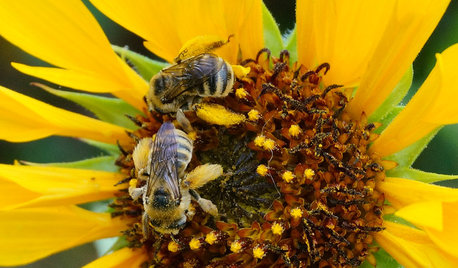
EARTH DAY12 Entertaining ‘Bee-haviors’ of Native Bees
The parade of pollinator antics is another reason to create a garden that nurtures native bees
Full Story
GARDENING FOR BUTTERFLIESGardening for the Bees, and Why It’s a Good Thing
When you discover how hard bees work for our food supply, you may never garden without them in mind again
Full Story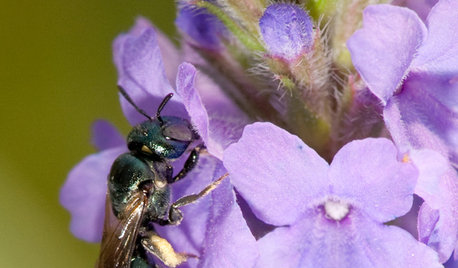
GARDENING GUIDESSmall Carpenter Bees Are Looking for a Home in Your Plant Stems
Provide flowers and nesting sites in your garden for this beautiful, tiny, metallic blue wild bee — your plants will thank you
Full Story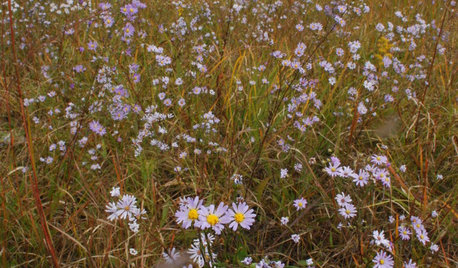
GARDENING GUIDES15 Native Flowers That Feed Native Bees
These perennials offer superfood to hundreds of bees and are gorgeous in their own right
Full Story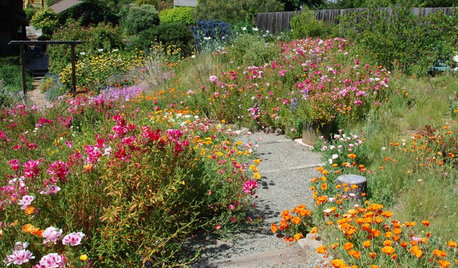
EARTH DAYHow to Design a Garden for Native Bees
Create a garden that not only looks beautiful but also nurtures native bees — and helps other wildlife in the process
Full Story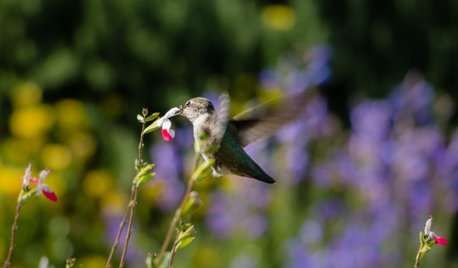
GARDENING GUIDESAttract Hummingbirds and Bees With These Beautiful Summer Flowers
Roll out a welcome mat for pollinators to keep your landscape in balance and thriving
Full Story
FEEL-GOOD HOME12 Very Useful Things I've Learned From Designers
These simple ideas can make life at home more efficient and enjoyable
Full Story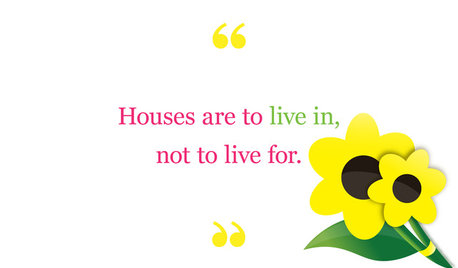
MOTHER’S DAYWhat We've Learned From Mom About Home
Share cherished memories as Houzzers recall the special traits, insights and habits of their mothers
Full Story
KITCHEN OF THE WEEKKitchen of the Week: Goodbye, Honey Oak — Hello, Minty Green
After more than 30 years, the Kloesels revamped their space to reflect their rural country town and Victorian-style home
Full StorySponsored






fusion_power
jimster
Related Professionals
Accokeek Landscape Architects & Landscape Designers · Tomball Landscape Architects & Landscape Designers · Aurora Landscape Contractors · Manchester Landscape Contractors · Wake Forest Landscape Contractors · El Reno Landscape Contractors · Fuquay-Varina Landscape Contractors · Metairie Landscape Contractors · Plainview Landscape Contractors · Winchester Landscape Contractors · Yukon Landscape Contractors · North Hills Landscape Contractors · Ansonia Landscape Contractors · Shorewood Decks, Patios & Outdoor Enclosures · Hayward Decks, Patios & Outdoor Enclosuresaftermidnight Zone7b B.C. CanadaOriginal Author
fusion_power
zeedman Zone 5 Wisconsin
aftermidnight Zone7b B.C. CanadaOriginal Author
fusion_power
aftermidnight Zone7b B.C. CanadaOriginal Author
anney
fusion_power
jimster
anney
fusion_power
Macmex
hemnancy
happyday